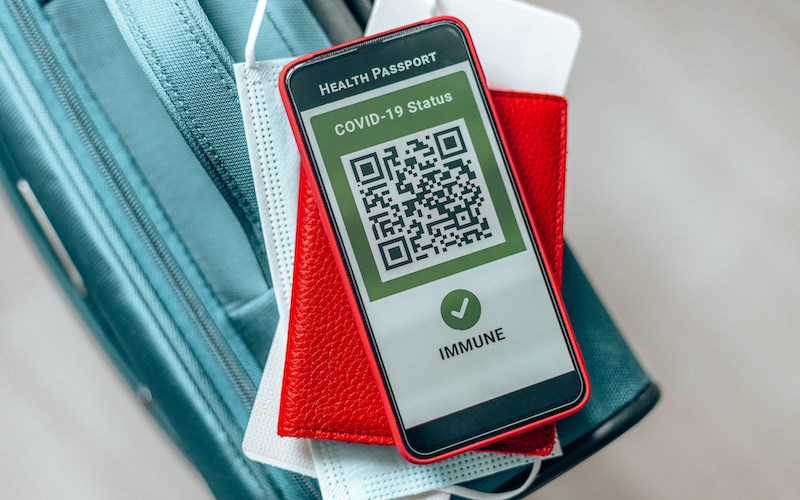Quebec will implement a vaccine passport program to curb the spread of COVID-19, Premier François Legault announced Thursday (Aug 5).
But will the other provinces follow suit?
While the federal government requires Canadians to show proof of vaccination to skip quarantine upon entry to the country, locals may travel freely domestically without showing it.
But Health Minister Adrian Dix said his staff is now investigating the viability of a passport program.
"We are pursuing all options to address the transmission of COVID-19," he explained.
"I would say to everyone, 'No, you're not obliged to get vaccinated in B.C., or anywhere else in Canada, but there are consequences if you don't,' and I think everyone will have to understand that."
In Quebec, Legault said the program will allow vaccinated people to come back to a normal life but that it will mean "some non-essential services will be available only to vaccinated people." Similarly, B.C. officials will work out details for exactly which non-essential services will be open only to cardholders.
Implementing a vaccine passport program in B.C.
For Dr. Jeffrey Joy, Assistant Professor, Department of Medicine at the University of British Columbia (UBC), a vaccine passport program seems like a logical next step for the province.
"I'm supportive of anything that motivates increases in vaccine coverage, and a vaccine passport program would help further motivate people to get vaccinated," he tells Vancouver Is Awesome.
Joy believes that B.C. is already in the fourth wave but that implementing a program might "help prevent future waves." Additionally, these kinds of programs have already been implemented in countries such as France and Italy, he notes.
Instead of requiring vaccination certificates or passports, Dr. Sarah Otto, Professor, Department of Zoology at UBC, tells V.I.A. that she favours vaccination drives that make the process easier. She also thinks incentives " like time off from work to get vaccinated, free raffles, preferred seating at sports and music events" will encourage people to roll up their sleeves.
So far, Otto says B.C. has made "amazing progress." While vaccination progress has slowed down somewhat, she feels health officials "need to continue to try to reach people and convince them" of the health crisis.
"I also think it is really important to communicate that with Delta (or the next variant) most people in BC will eventually be exposed. So it's a choice: be exposed to a small piece of the virus through a vaccine or by getting COVID-19? The latter has a 25 times higher chance of landing someone in the hospital (or worse)."
Are there ethical concerns related to a vaccination passport program?
While a recent poll found that nearly two-thirds of Canadians support the idea of vaccine passports for travel, that figure dropped somewhat for entry into sporting events and concerts domestically. While the majority of people believe still felt they are a good idea, a sizeable share of the population doesn't support the requirement.
Dr. Judy Illes, Professor, Division of Neurology in the Department of Medicine at UBC, says it is vital to make the distinction between vaccine passports and vaccine certificates.
"We should be looking at vaccine certificates for COVID-19 in the same way that we talk about vaccine certificates for other diseases," she says.
Illes says calling the certificates "passports" puts them into a separate category that is "unnecessarily risky and potentially unethical."
In order for people to have equal access, there needs to be accommodations made for people who are unable to receive vaccines, whether they are vulnerable given certain health disorders or simply who haven't been unable to receive a vaccine. She believes the use of the word "passport" focuses on focuses on social gatherings and travel over public health.
In situations where certificates are checked, Illes says there should be rules regarding who is checking the certificates, how the data is collected, how the data is certified as authentic, and what happens to data if it is stored.
"What if someone says they have been vaccinated but they lose their card?" she asks, pointing out that there must be proper guidance and in place. Ultimately, there must be a "principled approach" to implementing the program that would ideally apply across Canada so that everyone is on the same page.
With files from Glen Korstrom and the Canadian Press.




